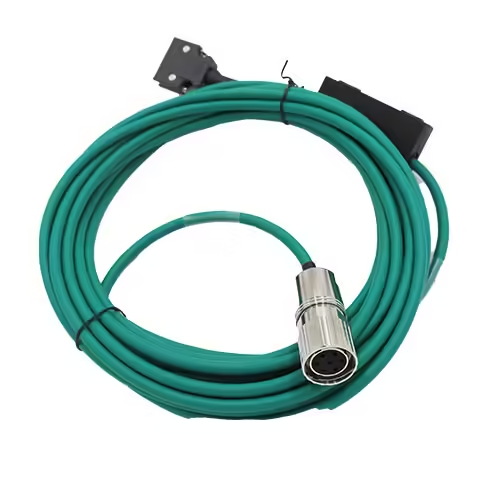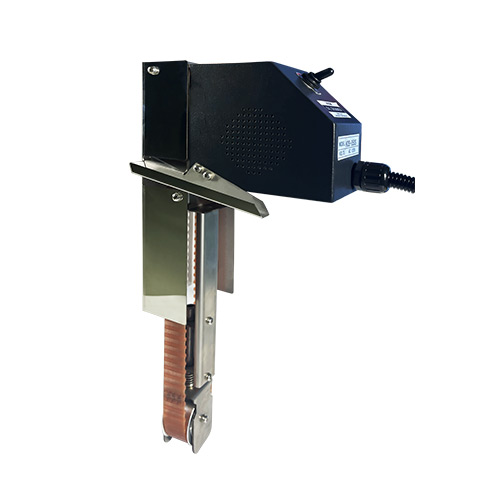-
WhatsAPP: +86 18706448138
-
Tengzhou, Shandong, China

Choosing Reliable Industrial Oil Water Separators
Integrating reliable industrial oil water separators into industrial processes to enhance operational efficiency and sustainability.
Table of Contents
Introduction

Industrial oil water separators are critical systems designed to remove oil and other contaminants from wastewater, ensuring compliance with environmental regulations and protecting water resources. These separators are essential in industries like manufacturing, automotive, and machining, where oily wastewater is a common byproduct. As a leading developer and manufacturer of electrical components for CNC machine tools, Shansen recognizes the importance of integrating reliable industrial oil water separators into industrial processes to enhance operational efficiency and sustainability. This blog explores the key factors to consider when choosing a separator, offering insights into their functionality, benefits, and selection criteria.
Why Industrial Oil Water Separator Are Essential
Oily wastewater poses significant environmental risks if not properly treated. Industrial oil water separator play a vital role in preventing oil from entering water systems, reducing the risk of pollution and costly fines. For industries like CNC machining, where Shansen provides advanced electrical components, these separators ensure that wastewater from cutting fluids and lubricants is treated effectively. By removing oil, solids, and other contaminants, separators help businesses maintain compliance with stringent environmental standards while promoting eco-friendly operations.
How Industrial Oil Water Separators Work

Basic Principles of Oil-Water Separation
Industrial oil water separators operate on the principle of gravity separation, leveraging the difference in density between oil and water. Oil, being less dense, floats to the surface, where it is skimmed or collected, while water is discharged or further treated. Advanced systems may incorporate coalescing media or filtration to enhance separation efficiency.
Types of Separators
There are several types of industrial oil water separator, including gravity-based, coalescing plate, and hydrocyclone separators. Each type is suited to specific applications, depending on factors like flow rate, oil concentration, and contaminant type. For example, coalescing plate separators are highly effective in CNC machining facilities, where Shansen’s electrical components support precision operations.
Key Features to Look for in Industrial Oil Water Separators
Efficiency and Performance
When selecting industrial oil water separators, efficiency is paramount. Look for systems with high oil removal rates, typically above 99%, to ensure minimal residual oil in discharged water. Performance metrics like flow capacity and maintenance frequency should align with your facility’s needs.
Durability and Material Quality
Separators must withstand harsh industrial environments. Stainless steel or corrosion-resistant materials are ideal for long-term durability, especially in facilities like those using Shansen’s CNC machine tool components, where reliability is critical.
Ease of Maintenance
Choose separators with accessible components for easy cleaning and maintenance. Systems with automatic oil skimmers or self-cleaning features reduce downtime and labor costs, ensuring consistent performance.
Benefits of Using High-Quality Industrial Oil Water Separators
Investing in reliable industrial oil water separators offers multiple advantages. These systems reduce environmental liability, lower wastewater treatment costs, and enhance operational efficiency. For businesses like Shansen, which prioritizes sustainable manufacturing, separators contribute to a cleaner production process by managing wastewater effectively. Additionally, high-quality separators can extend the lifespan of equipment by preventing oil-related corrosion and wear.
Comparison of Industrial Oil Water Separator Specifications
To help you evaluate different industrial oil water separators, the following table outlines key specifications to consider. This table focuses on general performance metrics and is not brand-specific, ensuring a fair comparison.
| Specification | Description | Typical Range/Value |
|---|---|---|
| Flow Rate | Volume of wastewater processed per hour | 10–500 GPM |
| Oil Removal Efficiency | Percentage of oil removed from wastewater | 95%–99.9% |
| Material | Construction material for durability | Stainless steel, polyethylene, or fiberglass |
| Maintenance Frequency | How often the system requires cleaning or servicing | Monthly to quarterly |
| Coalescing Media | Presence of media to enhance oil separation | Yes/No |
| Footprint | Physical space required for installation | 2–50 square feet |
| Operating Temperature | Range of temperatures the system can handle | 40°F–140°F |
| Power Requirements | Electrical needs for automated features | 110V–240V, or none for gravity systems |
This table serves as a starting point for assessing separator suitability for your facility’s wastewater treatment needs.
Factors to Consider When Choosing Industrial Oil Water Separators
Application-Specific Requirements
Different industries have unique wastewater profiles. For CNC machining facilities, where Shansen’s electrical components are integral, separators must handle high volumes of emulsified oils and cutting fluids. Assess your facility’s oil type, flow rate, and contaminant load to select a compatible system.
Regulatory Compliance
Ensure the separator meets local and national environmental regulations, such as those set by the EPA or regional authorities. Compliance is critical to avoid penalties and maintain operational licenses.
Budget and Cost of Ownership
While upfront costs are important, consider long-term expenses like maintenance, energy consumption, and replacement parts. High-quality industrial oil water separators often have lower total costs due to their durability and efficiency.
Common Applications of Industrial Oil Water Separators
Industrial oil water separators are used across various sectors, including:
- Manufacturing: Treating wastewater from machining and metalworking processes.
- Automotive: Managing runoff from vehicle maintenance and washing facilities.
- Marine: Handling bilge water on ships and docks.
- Oil and Gas: Separating oil from produced water during extraction.
Shansen’s expertise in CNC machine tool components highlights the importance of separators in manufacturing, where precision and environmental responsibility go hand in hand.
Installation and Maintenance Tips for Industrial Oil Water Separators
Proper Installation
Correct installation is crucial for optimal performance. Ensure the separator is level, properly sized for your flow rate, and integrated with your wastewater system. Consult with professionals to avoid common installation errors.
Routine Maintenance
Regular maintenance extends the lifespan of industrial oil water separators. Schedule inspections to check for sludge buildup, clean coalescing media, and replace worn components. Automated systems can simplify this process, reducing manual intervention.
Training Staff
Train facility personnel on separator operation and maintenance protocols. Well-trained staff can identify issues early, preventing costly repairs and ensuring consistent performance.
Environmental and Economic Impact of Industrial Oil Water Separators

By effectively treating wastewater, industrial oil water separators reduce environmental pollution and conserve water resources. Economically, they lower treatment costs, minimize fines, and enhance operational efficiency. For companis like Shansen, which champions sustainable manufacturing, these systems align with corporate social responsibility goals, fostering a positive brand image.
Conclusion
Choosing the right industrial oil water separators is a strategic decision that impacts your facility’s environmental footprint, compliance, and operational efficiency. By prioritizing efficiency, durability, and ease of maintenance, businesses can achieve long-term benefits while meeting regulatory requirements. Shansen, as a leader in CNC machine tool electrical components, understands the value of reliable wastewater treatment solutions in supporting sustainable manufacturing. Ready to invest in a high-quality separator? Contact us today to explore our recommended solutions and enhance your operations.
FAQ
What are industrial oil water separators?
Industrial oil water separators are systems designed to remove oil and contaminants from wastewater, ensuring compliance with environmental regulations.
Can separators handle emulsified oils?
Advanced separators with coalescing media or chemical treatment can effectively handle emulsified oils, common in CNC machining.
How do I choose the right separator for my facility?
Consider factors like flow rate, oil type, regulatory requirements, and budget. Consulting with experts ensures the best fit for your needs.


